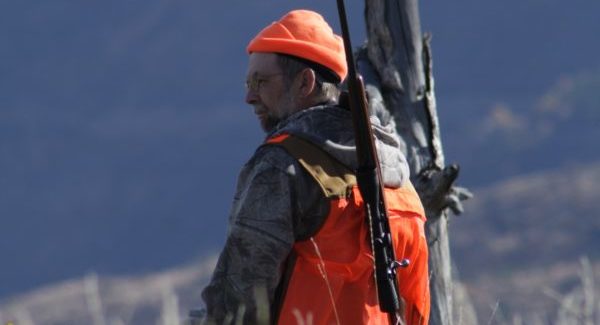
Strange as it may seem, there may be one very positive benefit from the COVID-19 pandemic, which may be at least partly responsible for a spike in the sales of hunting and fishing licenses, according to Fox News.
For example, Michigan saw a 10 percent increase in hunting license sales this year with more than 545,000 sold through mid-November, Fox reported.
Wisconsin archery licenses sales climbed 12 percent, and similar upticks in license sales have been reported in Maine, Nevada and Vermont, the story noted.
What’s going on? According to the Associated Press, many Americans have been inspired to get back outdoors, where “social distancing” is virtually guaranteed. Hunting is a solitary endeavor for most people; a way to set aside face masks and other inconveniences created by what many call the “pandemic panic.”
The AP story followed one Michigan man’s return to the forest after a 22-year hiatus. From there, the report explained, “Many Americans appear to be doing likewise, as sales of hunting and fishing licenses are spiking in much of the U.S. Weary of being cooped up at home — and of masking and social distancing when they go elsewhere — they’re taking refuge in outdoor sports that offer safety and solitude.”
Among the statistics included in the report, Michigan saw a 20 percent increase in the number of female hunters and an 18 percent spike in the number of licenses sold to children.
According to the published reports, this upswing in hunting appears to be on the national scale, which is good news for the U.S. Fish & Wildlife Service. For several years since the 1980s, hunting license sales have been gradually declining. State wildlife agencies depend upon license and tag sales for a large portion of their annual budgets.
However, states have continued receiving apportionments from the Pittman-Robertson and Dingell-Johnson funds. Pittman-Robertson, otherwise known as the Federal Aid in Wildlife Restoration Program, has raised billions of dollars since its enactment in 1937. Revenues from a special excise tax on the sale of firearms and ammunition, and certain other items, are divided among the states to support wildlife conservation and enhancement programs, maintain habitat and support hunter education and range development.
Dingell-Johnson is a similar program funded by special excise taxes on fishing equipment that helps fish and game agencies conserve and enhance fisheries programs. Dingell-Johnson is officially known as the Federal Aid in Sport Fish Restoration Act.
These monies also have provided matching funds to state agencies for projects that also are supported by private groups including the Rocky Mountain Elk Foundation, Ducks Unlimited, Ruffed Grouse Society and Safari Club International.
But gun and ammunition sales provide tens of millions of dollars to the fund, which is administered by the U.S. Fish & Wildlife Service. Even recreational shooters who don’t hunt provide excise tax revenues to Pittman-Robertson when they purchase guns and ammunition. The total Wildlife Restoration apportionment fund for this year came to $601,827,014.
Now with Joe Biden preparing to take office, gun and ammunition sales will likely skyrocket even more as American gun owners brace for the potential impact of extremist gun control legislation.